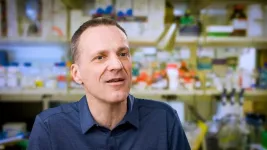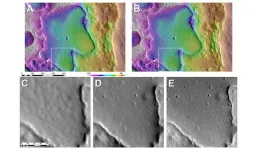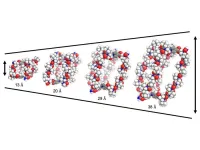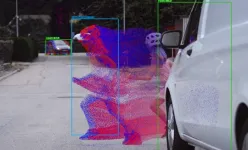ASCO brings together leading experts in clinical oncology to share the latest breakthroughs in cancer research, science and medicine. Presentations from Mass General Cancer Center investigators include a plenary session on palliative care delivery via telehealth versus in-person for patients with advanced lung cancer. Oral presentations include advances in colorectal cancer treatments, as well as those in metastatic breast cancer, meningiomas, acute myeloid leukemia and beyond.
Below are a few highlights from this year’s presentations. Times are Central Time (CT). View a full list of Mass General Cancer Center presentations here.
Updated results from ERAS-007 plus encorafenib and cetuximab (EC) in patients (pts) with EC-naïve metastatic BRAF V600E colorectal cancer (CRC) in the phase 1b/2 HERKULES-3 study
When: June 3, 2024, 2:27-2:33 p.m.
Who: Aparna Parikh, MD
What: The RAS/MAPK pathway (including the BRAF gene) is dysregulated in a broad range of cancers, including colorectal cancer (CRC), resulting in the downstream activation of ERK1/2. Patients with metastatic CRC with a BRAF V600E mutation have dramatically poorer survival rates than those with non-BRAF V600E mutated CRC, highlighting the need for novel therapies. Currently, the combination of a BRAF plus EGFR inhibitor is approved for the treatment of patients with BRAF V600E mCRC; however, objective response occurs in only 20% of patients. ERAS-007 is a novel, potent, and orally bioavailable inhibitor of ERK. HERKULES-3 is a Phase 1b/2 study to assess the safety, tolerability, pharmacokinetics (PK), and preliminary clinical activity of ERAS-007 combinations targeting the MAPK pathway in patients with advanced GI cancers. As of November 30, 2023, 19 patients have been dosed with ERAS-007 — 100 mg twice daily-once a week (BID-QW) in combination with encorafenib and cetuximab (EC). In the efficacy evaluable patients, the objective response rate was 40% with 3 of the 4 responses confirmed. The maximum duration of response is >15 months; updated data will be presented. The data show that ERAS-007 100 mg BID-QW in combination with EC was safe and well-tolerated with preliminary evidence of promising clinical activity. These results support continued evaluation of this combination in patients with BRAF V600E CRC.
Comparative effectiveness trial of early palliative care delivered via telehealth versus in person among patients with advanced lung cancer
When: June 2, 2024, 2:13-2:25 p.m.
Who: Joseph Greer, PhD, and Jennifer Temel, MD, FASCO
What: This plenary session and late-breaking abstract is embargoed until 7 a.m. on June 2, 2024.
Multi-site randomized trial of stepped palliative care (PC) for patients with advanced lung cancer
When: June 2, 2024, 8-8:12 a.m.
Who: Jennifer S. Temel, MD, FASCO
What: Studies show that early palliative care (EPC), integrated with oncology care from the time of diagnosis of advanced cancer, improves patient and caregiver outcomes. However, this care model has not been widely implemented for two main reasons: the shortage of palliative care (PC) clinicians nationwide and challenges in providing PC visits throughout the course of cancer treatment, especially as novel therapeutics prolong survival. Therefore, to deliver more patient-centered and less resource-intensive PC, the team evaluated a stepped PC (SPC) model in patients with advanced lung cancer in a multi-site randomized trial of SPC versus EPC. All patients assigned to SPC started on Step 1, with an initial PC visit within four weeks of enrollment and subsequent PC visits scheduled only at the time of a change in cancer treatment or after a hospitalization. Patients on Step 1 also completed a measure of quality of life (QOL) every six weeks for up to 18 months from enrollment, and those with a greater than or equal to 10-point decrease in their score from baseline were stepped up to meet with the PC clinician every four weeks (Step 2). Patients assigned to EPC had PC visits every four weeks from enrollment. Results showed that QOL scores at week 24 for patients assigned to SPC were non-inferior to those receiving EPC. Thus, a stepped care model, with PC visits scheduled only at key points in patients’ cancer trajectories and using a decrement in QOL to trigger more intensive PC exposure, resulted in significantly fewer PC visits without sacrificing the benefits for patients’ QOL. While SPC was associated with fewer days in hospice, this novel model holds promise as a more scalable way to deliver early PC to enhance patient-reported outcomes.
Alliance A071401: Phase II trial of abemaciclib in patients with grade 2/3 meningiomas harboring somatic NF2 or CDK pathway alterations
When: June 3, 2024, 8:12-8:24 a.m.
Who: Priscilla Brastianos, MD
What: Systemic treatments are limited for patients with meningiomas that have progressed after surgery and/or radiation. Loss of NF2and CDKN2A/B are common in higher-grade meningiomas and promote meningioma progression in preclinical models. The team evaluated the efficacy of abemaciclib, a cyclin-dependent kinase (CDK) 4/6 inhibitor, as part of Alliance umbrella trial A071401, a genomically driven phase II study in recurrent or progressive meningiomas. Eligible patients with grade 2/3 tumors and NF2 mutations or CDK pathway alterations were treated with abemaciclib — 200 mg orally twice daily until progressive disease. Of the 24 patients evaluated, 58% were female and the median age was 62 years. The observed progression-free survival rate at six months (PFS6) was 54% (13/24 patients). Abemaciclib was well-tolerated and resulted in an improved PFS6, and the overall trial endpoint was met. Abemaciclib warrants further investigation for the treatment of patients with progressive grade 2/3 meningiomas.
Multi-site randomized trial of a collaborative palliative and oncology care model for patients with acute myeloid leukemia (AML) and myelodysplastic syndrome (MDS) receiving non-intensive therapy
When: May 31, 2024, 5:09-5:21 p.m.
Who: Areej El-Jawahri, MD
What: This late-breaking abstract is embargoed until 7 a.m. on May 31, 2024.
First-line inavolisib/placebo + palbociclib + fulvestrant (Inavo/Pbo+Palbo+Fulv) in patients (pts) with PIK3CA-mutated, hormone receptor-positive, HER2‑negative locally advanced/metastatic breast cancer who relapsed during/within 12 months (mo) of adjuvant endocrine therapy completion: INAVO120 Phase III randomized trial additional analyses
When: June 1, 2024, 3:24-3:36 p.m.
Who: Dejan Juric, MD
What: NAVO120 showed significantly and meaningfully improved investigator-assessed, progression-free survival (PFS) with Inavo+Palbo+Fulv versus placebo+Palbo+Fulv, and manageable safety and tolerability. To further characterize the substantial benefit/risk of the Inavo triplet, the team assessed additional clinically relevant efficacy endpoints, detailed safety data of key adverse events (AEs) for Inavo (hyperglycemia, diarrhea, rash, stomatitis), and patient-reported outcomes (PROs). Efficacy endpoints included time from randomization to end of next-line treatment and to first chemotherapy. Patients receiving Inavo experienced a longer duration of time without worsening pain severity and maintained their day-to-day functioning and health-related quality of life. Most patients in both arms reported levels of selected symptomatic AEs from the PRO-CTCAE and overall treatment bother as moderate or less, indicating that Inavo does not contribute additional treatment burden. Thus, Inavo+Palbo+Fulv was associated with sustained benefit beyond disease progression, delaying chemotherapy administration, with manageable safety and tolerability that was reflected in PROs; hence, supporting it as a new standard of care.
# # #
About Mass General Brigham
Mass General Brigham is an integrated academic health care system, uniting great minds to solve the hardest problems in medicine for our communities and the world. Mass General Brigham connects a full continuum of care across a system of academic medical centers, community and specialty hospitals, a health insurance plan, physician networks, community health centers, home care, and long-term care services. Mass General Brigham is a nonprofit organization committed to patient care, research, teaching, and service to the community. In addition, Mass General Brigham is one of the nation’s leading biomedical research organizations with several Harvard Medical School teaching hospitals. For more information, please visit www.massgeneralbrigham.org.
END








